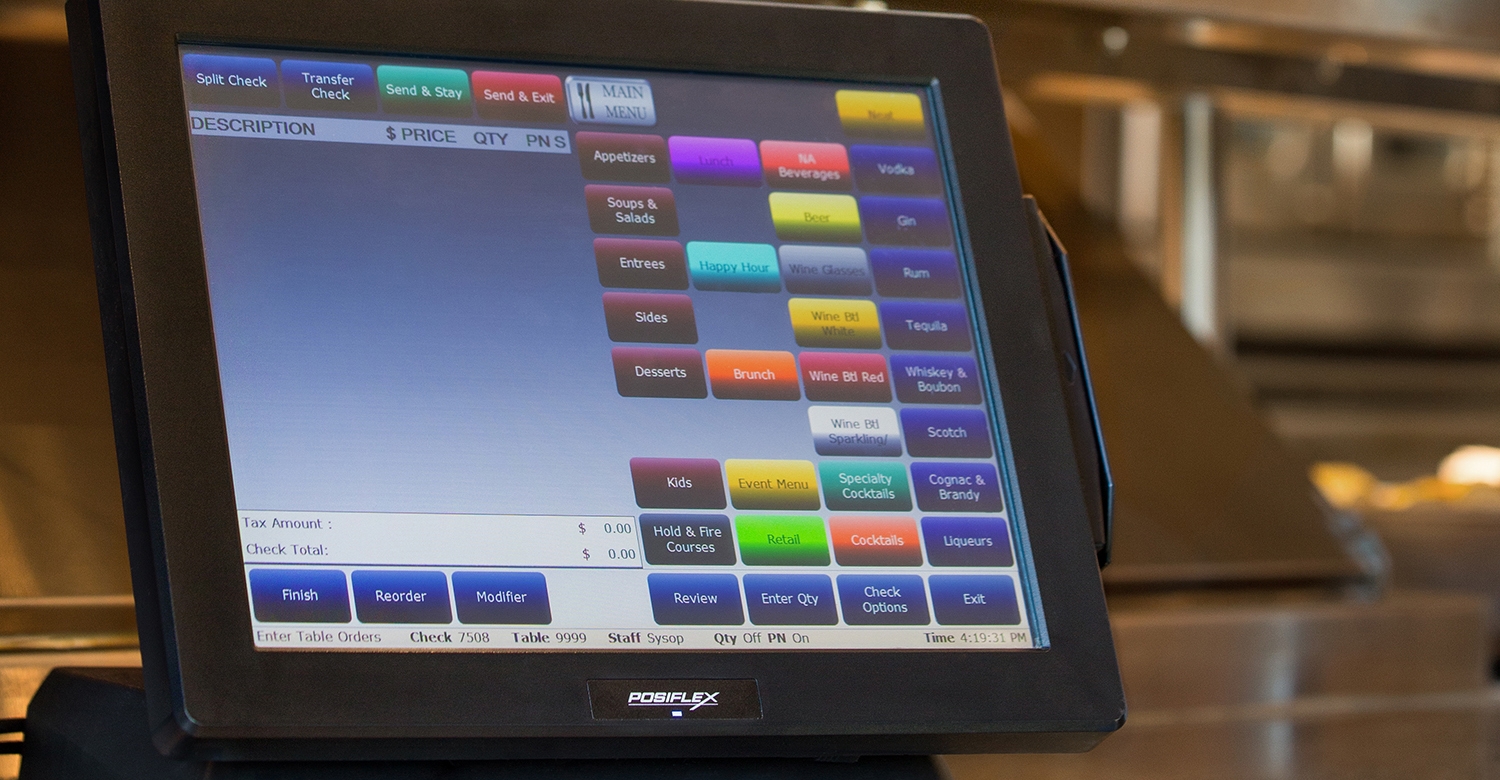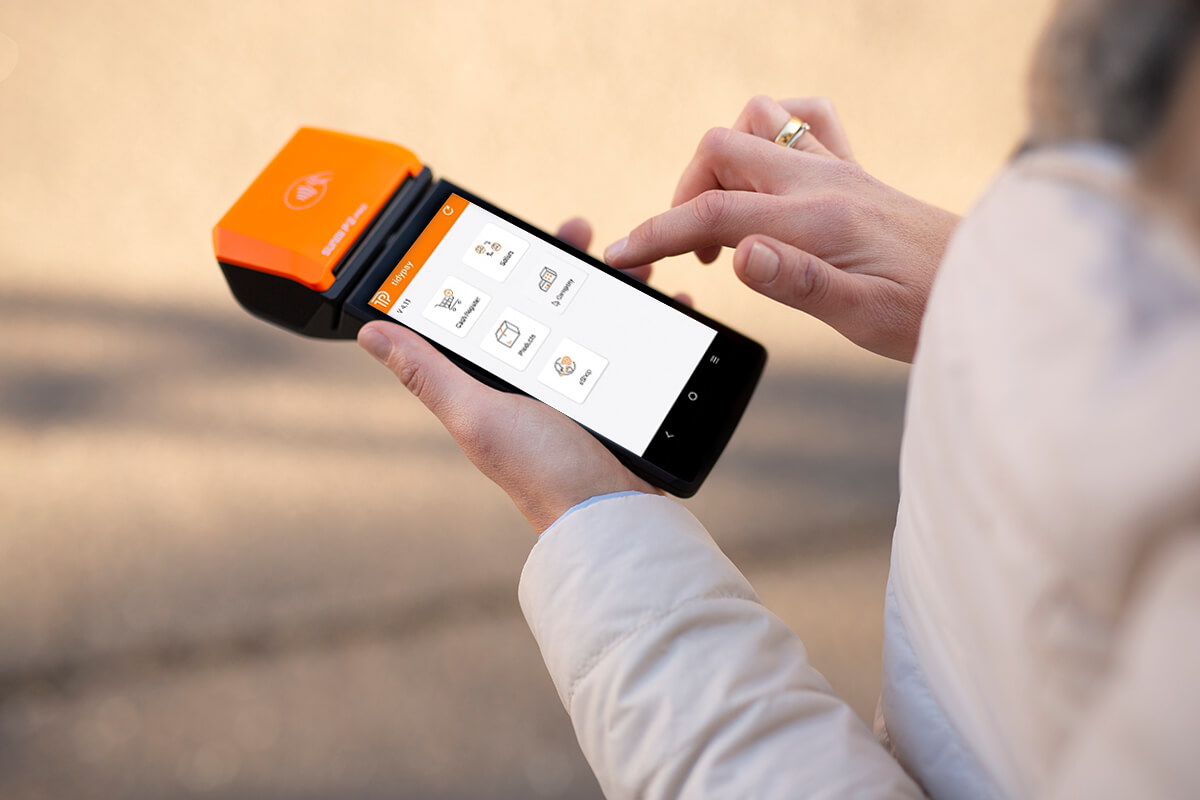The 4-Minute Rule for Point Of Sale
The 4-Minute Rule for Point Of Sale
Blog Article
A Biased View of Pos System For Small Business

Pos System for Small Business: Retail Point-Of-Sale Solutions Streamline Transactions
Our Point Of Sale Systems Diaries

Hardware Elements of a Point of Sale System What makes a POS system tick? It's not simply software application; the hardware plays a starring function. Think about it as the body to the software application's brain. Without the ideal hardware, even the most sophisticated POS software application is just a pretty face. Vital POS Hardware So, what are the must-haves? Let's simplify. The central processing system, typically a computer system or tablet, is the heart of the operation. The display or touchscreen show allows staff to interact with the system. A barcode scanner accelerate the checkout procedure. Remember the days of manually getting in each code? The dependable invoice printer provides clients with a record of their purchase. A cash drawer keeps your money safe and arranged. A card reader enables consumers to pay with credit or debit cards. Diving Deeper: Beyond the Essential But wait, there's more! Depending upon your organization, you might require specialized hardware. For instance, a restaurant may integrate kitchen area printers to relay orders, while a store might utilize label printers for item tagging. Ever wonder how your regional bakery instantly prints those delicious-looking labels? Choosing the Right Hardware: A Balancing Act Selecting read more the best hardware isn't just about purchasing the most expensive equipment. It has to do with discovering the sweet spot between functionality, toughness, and budget. A small business just beginning out might go with a more basic setup, while a high-volume seller will require robust, high-performance machines. Is it much better to purchase brand-new or used? Consider your alternatives carefully. A new system provides the most recent technology and warranty defense, but a reconditioned system can save you money. The Future of POS Hardware What does the future hold? Anticipate to see even more combination with mobile gadgets, biometric scanners for worker authentication, and advanced analytics control panels displayed on bigger, clearer screens. Imagine a world where stock is immediately updated in real-time as products are scanned-- a world where you can track your very popular item from throughout the world. The possibilities are endless, and the hardware is continually developing to meet the needs of today's services. Are you ready to update your point of sale system?
Software Features and Capabilities: The Heart of Your POS System
Ever enjoy a seasoned barista glide through a busy morning rush? Their secret isn't simply caffeine; it's a smooth dance with their POS system. The software is the conductor of your business symphony, managing everything from sales to inventory. What notes should you be listening for? What capabilities genuinely matter in today's market?
Inventory Management: Beyond Counting Beans
Forget spreadsheets that haunt your dreams. Modern POS systems offer real-time inventory tracking, notifying you when your stock of artisanal coffee beans dips precariously low. Think about it as a digital guardian angel, preventing those uncomfortable "Sorry, we're out!" minutes to consumers. What if you could likewise predict demand based upon historic information? Lots of systems now provide forecasting tools, an effective weapon against overstocking and lost sales. This helps avoid the predicament of running out of popular items or building up excess stock of slow-moving products, both of which can constrain capital and area.
Sales Reporting and Analytics: Decoding the Information
Sales information is the new gold, and your POS system is the miner. Forget simply understanding how much you offered today. Dive deep into the data to uncover trends, determine your best-selling items, and understand customer behavior. Which menu product sets perfectly with the everyday special? Which promo resonated most with your customers? These insights are not just fascinating; they're actionable intelligence. Without dependable sales reporting, browsing the intricacies of company decision-making becomes like sailing without a compass, increasing the opportunity of missteps and missed opportunities.
Client Relationship Management (CRM): Structure Bridges, Not Walls
Keeping in mind a routine consumer's name and preferred order is lovely, but scaling that personal touch is challenging. POS systems with CRM abilities enable you to track consumer purchase history, preferences, and even birthdays. Picture automatically using a discount rate on their birthday-- a small gesture that fosters commitment and encourages repeat service. There is the possible snag of bad information quality, which can lead to inaccurate customer profiles and inefficient marketing efforts.
Payment Processing: Improving the Deal
The checkout experience can make or break a sale. Smooth combination with various payment methods-- charge card, mobile wallets, even copyright-- is non-negotiable. Can your system handle split payments? Does it use protected tokenization to safeguard customer data? A cumbersome payment procedure is like hitting a sour note in your business symphony, potentially interfering with the whole efficiency. Guaranteeing compatibility with developing payment innovations and adherence to security requirements are vital for keeping client trust and operational efficiency.
Employee Management: Keeping the Group in Sync
From clocking in and out to managing authorizations and tracking efficiency, employee management features enhance operations and improve responsibility. Is scheduling a headache? Many POS systems use incorporated scheduling tools, enhancing staffing levels based upon predicted need. A typical barrier that is often ignored is the difficulty of incorporating employee management functionalities with payroll systems, which can lead to mistakes and ineffectiveness in wage calculations.
Advanced Features: Leveling Up Your Operations
- Table Management: Perfect for restaurants, this function permits you to picture your dining-room, track table status, and handle reservations.
- Loyalty Programs: Reward your finest consumers and motivate repeat business with integrated loyalty programs.
- Online Ordering Integration: Perfectly integrate your POS system with online ordering platforms to expand your reach.
Picking the best POS system is about more than just performance; it's about discovering a partner that can grow with your organization. Consider your existing needs, expect future growth, and don't be afraid to ask the difficult concerns. The best software can change your organization from a chaotic cacophony into a harmonious masterpiece.
Industry-Specific POS System Applications
Consider the regional pastry shop, dynamic with morning consumers craving fresh croissants. A generic POS system might handle deals, however can it manage complex dishes, track component stock, or automatically adjust production schedules based on sales information? Most likely not. That is where the charm of industry-specific POS systems shines.
Dining establishments and Hospitality
For busy dining establishments, speed and precision are paramount. The number of times have you seen servers managing orders, adjustments, and splitting bills, all while trying to offer exceptional service? A restaurant POS system streamlines these procedures, enabling table management, cooking area order tickets, and even online ordering combination. These systems often include functions like ingredient-level inventory tracking, vital for managing food expenses and decreasing waste. Ever question why your favorite meal is sometimes not available? It may stem from an absence of proper inventory management.
- Table Management
- Cooking Area Order Tickets
- Online Ordering Integration
- Ingredient-Level Stock Tracking
Retail Solutions
Retail, with its varied stock and consumer interactions, requires a different set of tools. Envision a boutique clothes shop having a hard time to track sizes, colors, and seasonal collections utilizing a standard checkout system. An industry-specific retail POS system provides functions like barcode scanning, customer commitment programs, and comprehensive sales reporting. These systems can even incorporate with e-commerce platforms, providing a seamless omnichannel experience for consumers. Did you understand some retail POS systems can anticipate future sales patterns based on historical information? Now that is powerful!
The Hazards of an Inequality
Selecting the incorrect POS system can develop significant operational difficulties. A clothing store using a restaurant POS, for instance, would discover it unsuitable for managing stock with sizes and colors. The lack of correct reporting and analytics might cause mistaken purchasing choices and lost earnings. The outcome could be similar to trying to fit a square peg in a round hole.
Key Considerations
Choosing an industry-specific POS system needs mindful assessment. Think about your company's special needs and operational workflows. Does the system incorporate with existing software application? Does it provide the essential reporting abilities? Is it scalable to accommodate future development? A well-chosen POS system is not just a deal tool; it's a tactical possession that can drive efficiency, enhance client satisfaction, and ultimately, enhance your bottom line. Remember, it is a financial investment in your business's future, not just an expenditure.
Security Factors To Consider for Point of Sale Systems
Ever heard the tale of the mom-and-pop shop that lost whatever since of a single, overlooked security flaw in their POS system!.?. !? It's a cautionary tale, and it highlights a critical element frequently overshadowed by the appeal of expensive features and structured operations. The truth is, a POS system is just as great as its security. What great is a system that crunches numbers in a flash if it permits criminals to swipe customer's information simply as rapidly?
The Vulnerability Minefield
The digital landscape is a battlefield. Every POS system, no matter size or sophistication, is a possible target. Are you truly prepared for the risks hiding around the corner? The genuine pinch comes when you discover that your outdated software application has a gaping hole that hackers can exploit, turning your business into an unwitting accomplice in identity theft. The trouble is that hackers are crafty and are constantly altering their strategies.
Common Security Gaps and Professional Tips
- Weak Passwords: "Password123" isn't cutting it. Use strong, unique passwords for all POS system accounts and change them frequently. Two-factor authentication is a must.
- Unsecured Networks: Your Wi-Fi is like leaving the front door open. Secure your network with strong encryption (WPA3 if possible) and think about a different network for your POS system.
- Out-of-date Software: Software application suppliers patch security holes all the time. Failing to upgrade is like welcoming problem. Establish automatic updates or schedule routine maintenance.
- Worker Training: Your personnel is your first line of defense. Train them to acknowledge phishing attempts, safeguard passwords, and report suspicious activity.
Information Encryption: Your Shield Against the Dark Arts
Consider data encryption as a secret code. It scrambles delicate info, like credit card numbers, making it unreadable to unapproved users. Without encryption, your customers' monetary details resemble sitting ducks, ripe for the selecting by cybercriminals. It's not practically safeguarding your consumers; it's about safeguarding your track record and avoiding substantial fines.
PCI Compliance: The Rulebook You Can't Disregard
If you accept credit cards, you're bound by the Payment Card Industry Data Security Requirement (PCI DSS) It's a set of security standards created to secure cardholder data. Stopping working to comply can lead to fines, charges, and even the loss of your capability to process charge card payments. It's a headache, yes, however it's a necessary one. Consider PCI compliance as the expense of doing company in the digital age.
Consider this: every transaction processed through your point of sale is a potential entry point for destructive stars. By implementing robust security procedures, you're not simply safeguarding your service; you're safeguarding your customers' trust and guaranteeing the long-term viability of your operations. The security of your POS system isn't just a technical problem; it's a service crucial. It needs continuous caution, proactive steps, and a commitment to staying ahead of the curve.